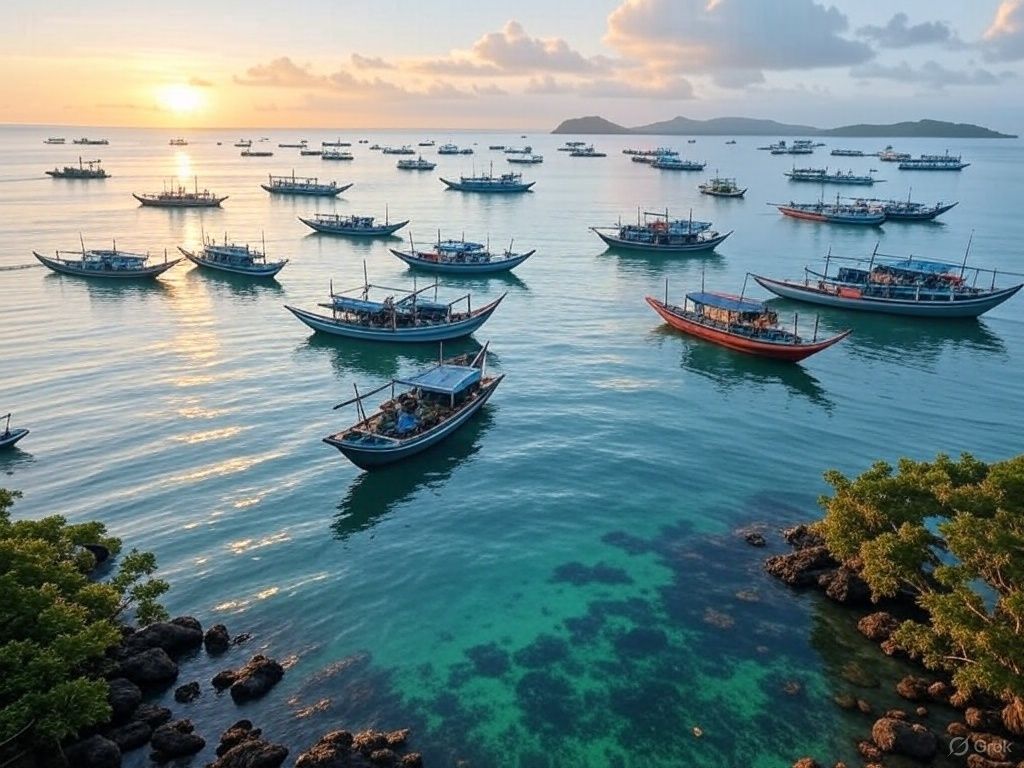At A Glance
- Considering that oceans are a source of immense renewable energy potential, stakeholders are in agreement that these could drive a blue economy. Specifically, they thought this could cut down the country's dependence on fossil fuels, effectively mitigating the worsening effects of climate change.
Stakeholders from various sectors believe that harnessing the power of the blue economy could help the Philippines meet its increasing energy needs amid overreliance on imported fuels that make electricity expensive.

This developed as various stakeholders and resource persons gathered at a multi-sectoral dialogue titled "Philippine Blue Economy: Moving Forward," hosted by the FVR Legacy Initiative and the Philippine Rural Reconstruction Movement (PRRM).
During the discussion, the stakeholders gave their input for a comprehensive national strategy for the country’s transition to an inclusive blue economy. Blue economy refers to the sustainable use of ocean resources for economic growth, improved livelihoods, and job creation while preserving marine ecosystem health.
Four workshops tackled the blue economy’s pressing issues concerning fisheries, aquaculture and marine-based products, energy, maritime transport, and coastal and marine tourism.
Considering that oceans are a source of immense renewable energy potential, stakeholders are in agreement that these could drive a blue economy. Specifically, they thought this could cut down the country’s dependence on fossil fuels, effectively mitigating the worsening effects of climate change.
Roberto de Ocampo, former finance chief and co-chairperson of the FVR Legacy Initiative, said the blue economy encourages the country to explore clean energy sources from the sea like offshore wind, tidal, and wave energy.
"These can help power homes and businesses while protecting our environment," he said.
"By investing in these technologies as an important part of an overall energy strategy that is both reliable and less costly, we can reduce pollution and create a more sustainable future for Filipinos," he added.
While the concept of the blue economy helping the country’s energy needs sounds appealing, PRRM project officer Leonora Lava argued that the government’s allocated budget for renewable energy remains limited.
There is also insufficient data regarding the amount of renewable infrastructure the Philippine oceans can support.
As such, there is a need for a national agency that continuously monitors the ocean’s capacity to support renewable energy.
Economist and former director general of the National Economic and Development Authority Cielito Habito said there were still overlaps and gaps in the regulatory and statutory frameworks, primarily from the Department of Energy and the Energy Regulatory Commission.
While ocean energy is promising, it does not come without risks and challenges. For one, Irene Rodriguez of the University of the Philippines Marine Science Institute said powering the future with sustainable ocean energy should not harm marine life.
Susan Baliog, Sabang Fisherfolks and Farmers Association president, agreed, saying the priority should still be the protection of fishing communities’ livelihood, marine environments, and managing coastal resources effectively.
Likewise, PRRM project coordinator Sharon Taylor said that while the blue economy energy must meet clean energy goals, it also needs to protect underwater life.
On the other hand, Mindanao Power Consumers Federation chairperson Melchora Ambalong called for the implementation and enforcement of the Philippine Development Energy Plan to better predict energy supply and demand.
On the international front, Foreign Service Institute assistant chief research officer Allysa Alberto noted that building alliances and securing climate financing will help drive a fair energy transition that would benefit all Filipinos.
Meanwhile, stakeholders called for the streamlining of permitting and financing for small and community-based projects while supporting microgrids and off-grid solutions in rural and island communities.
The roundtable discussions were in support of the Blue Economy Act, which is now pending in Congres,s together with other legislation like the National WPS Day and the Center for West Philippine Studies.